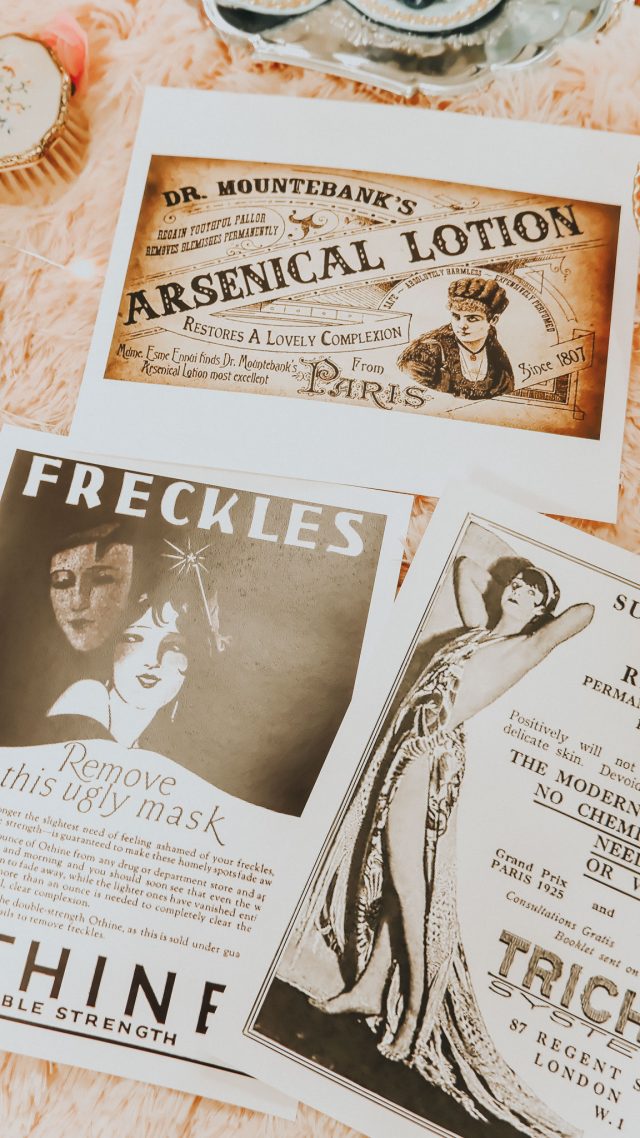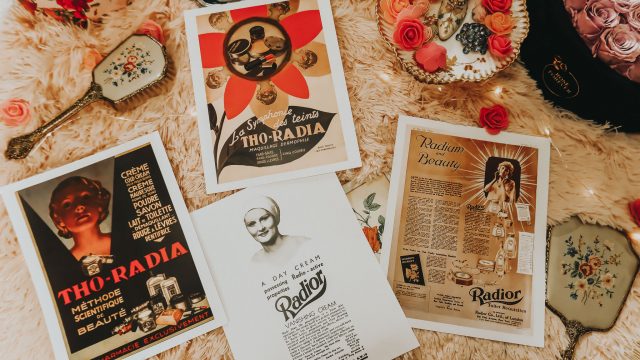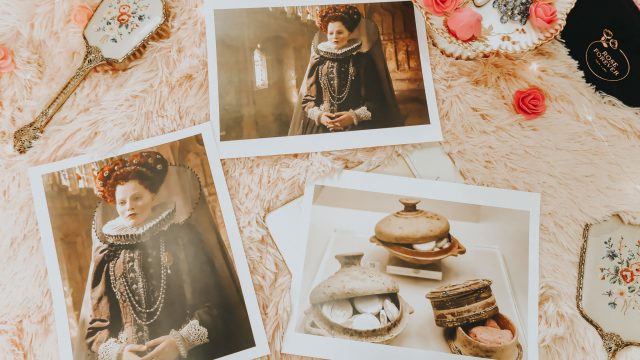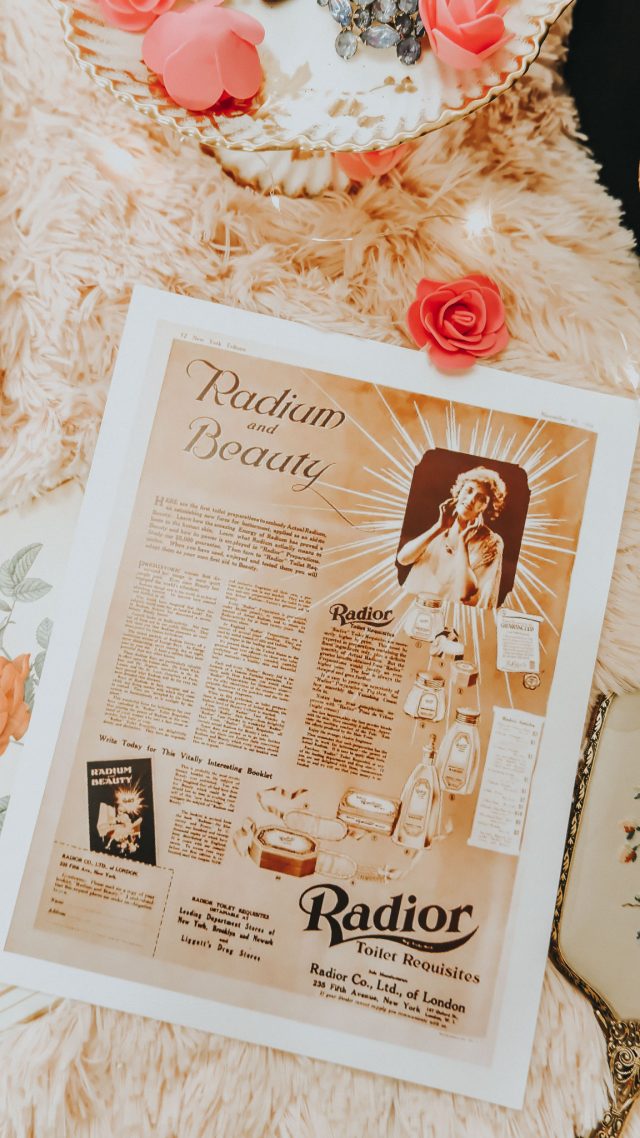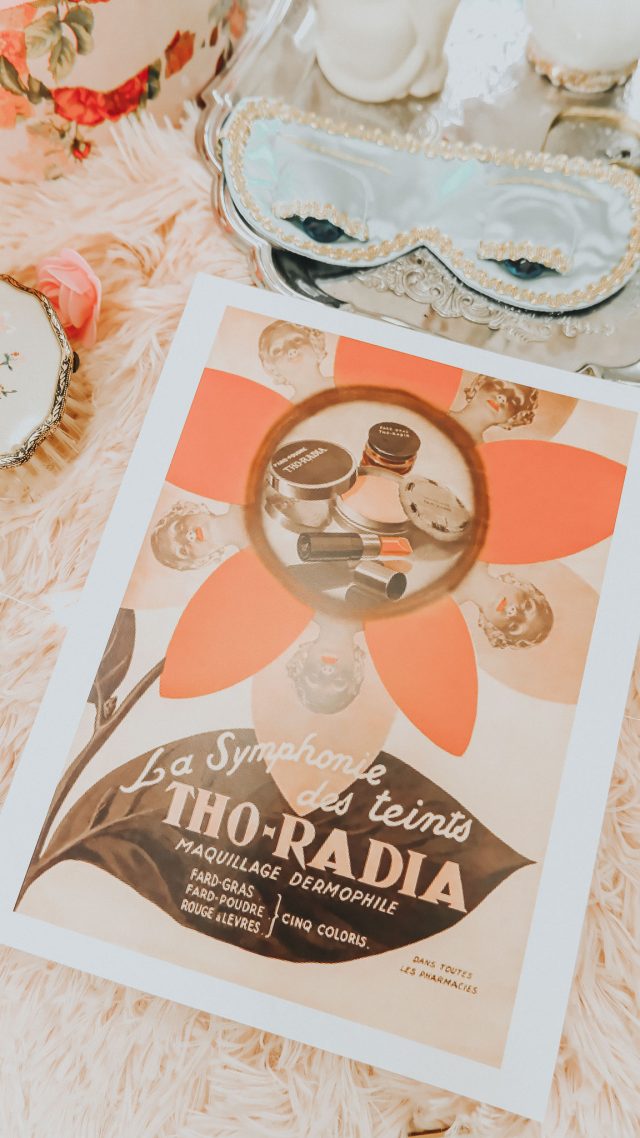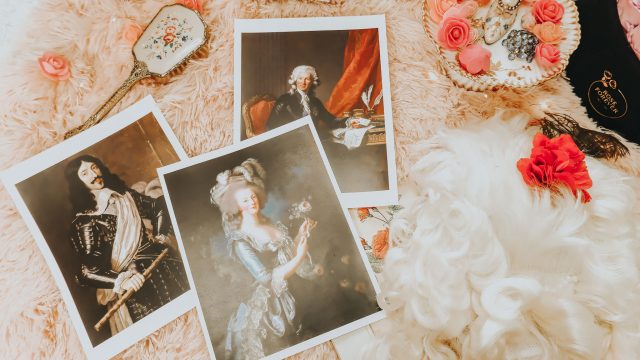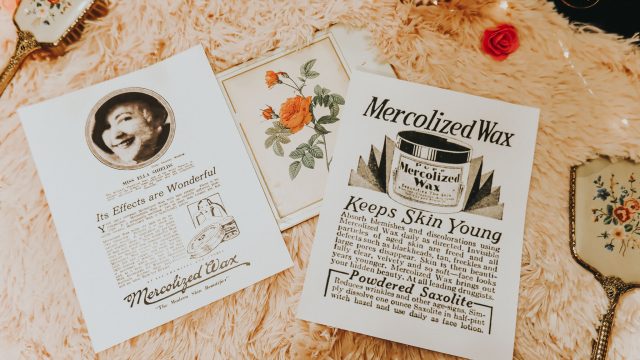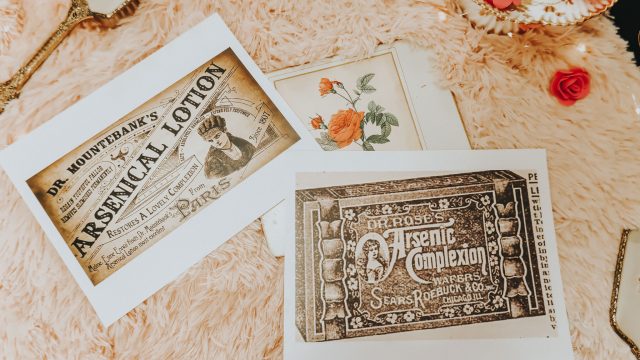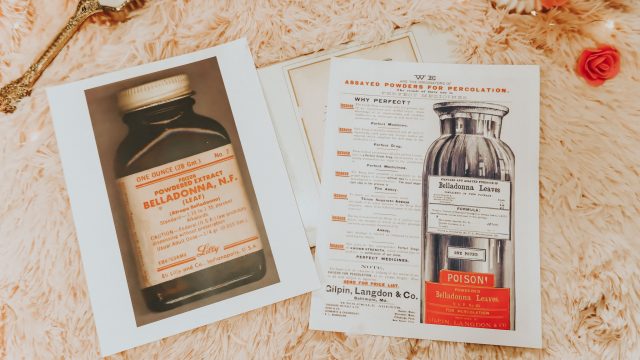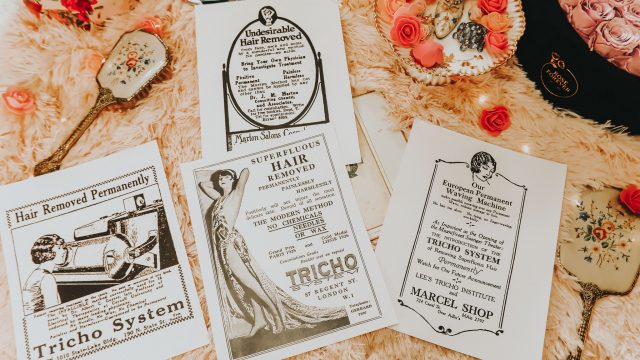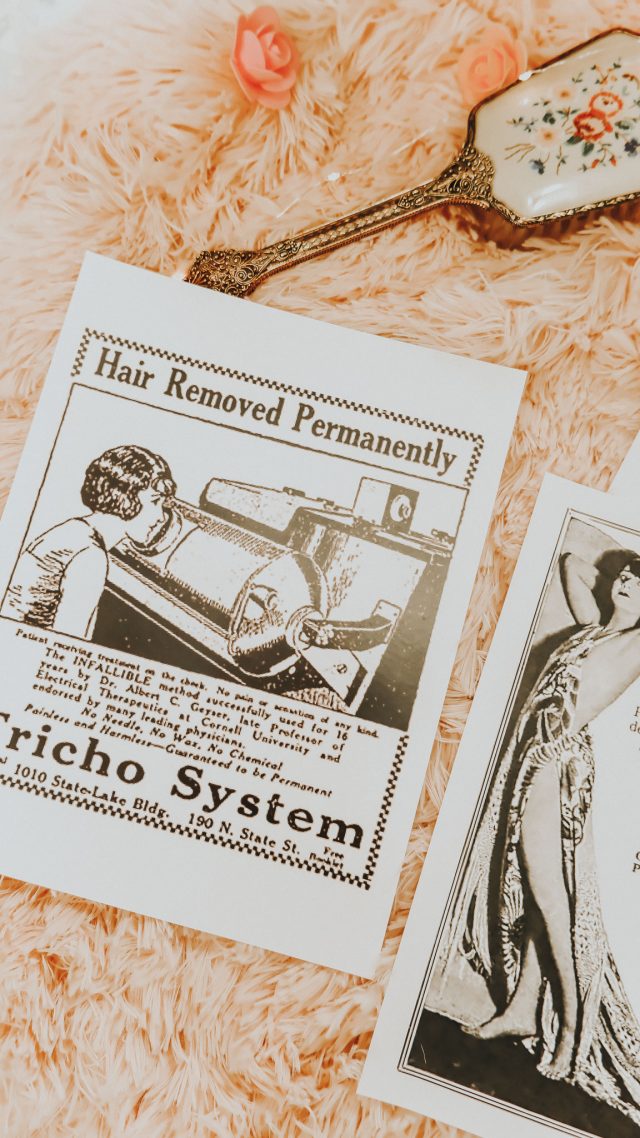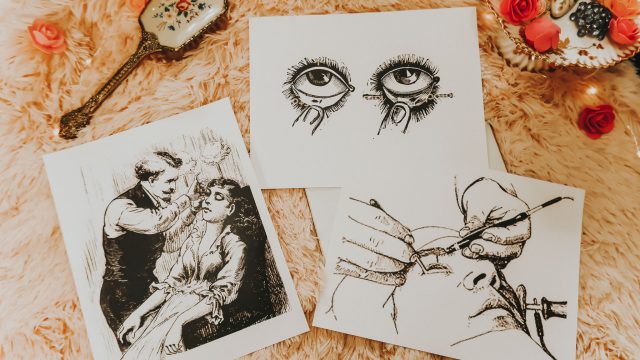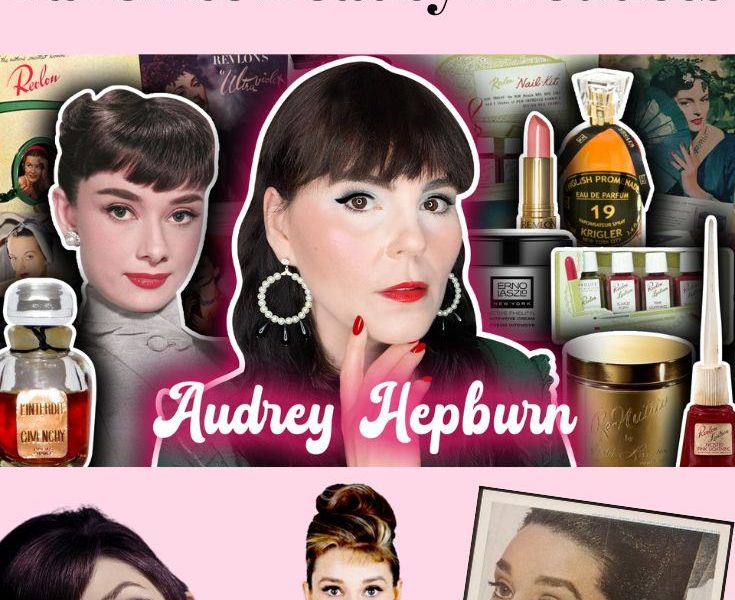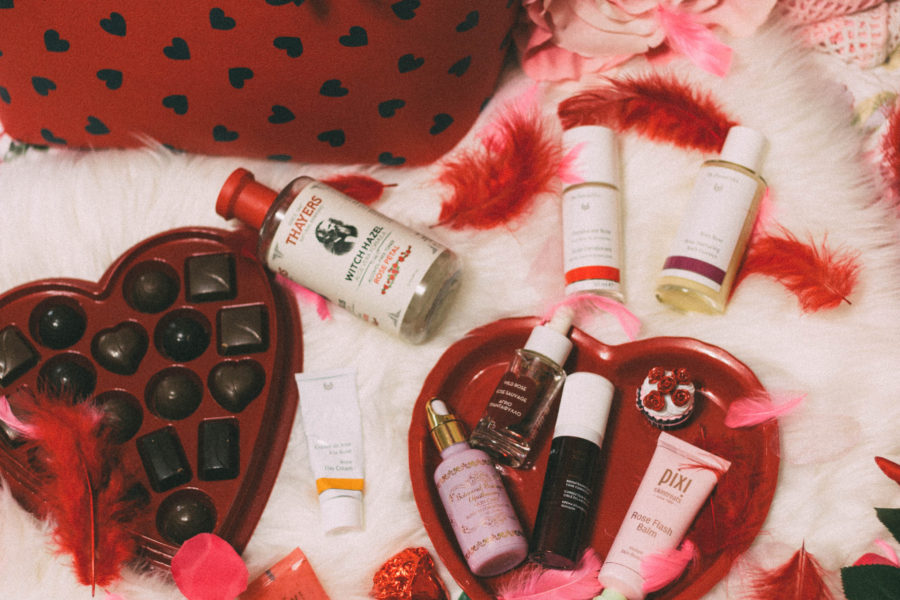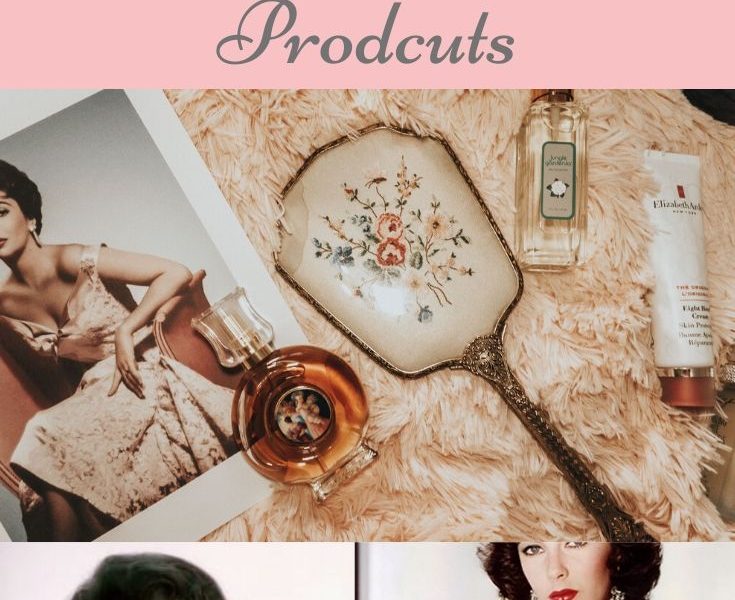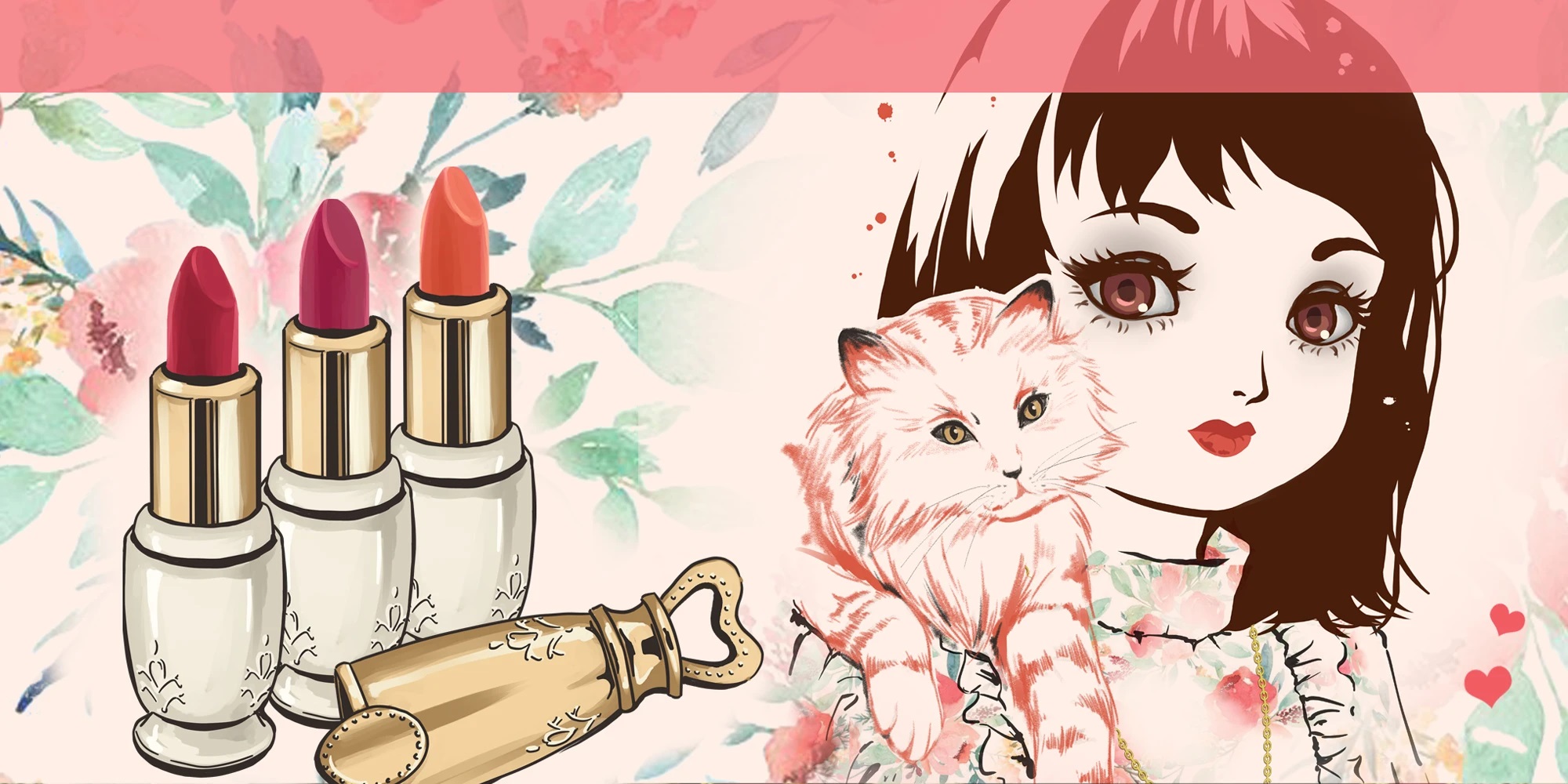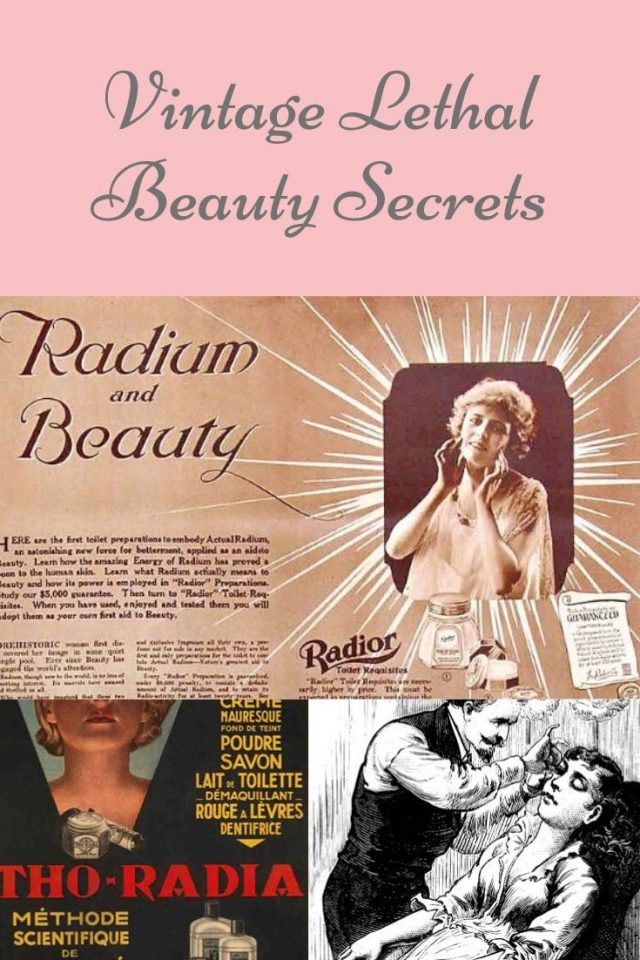
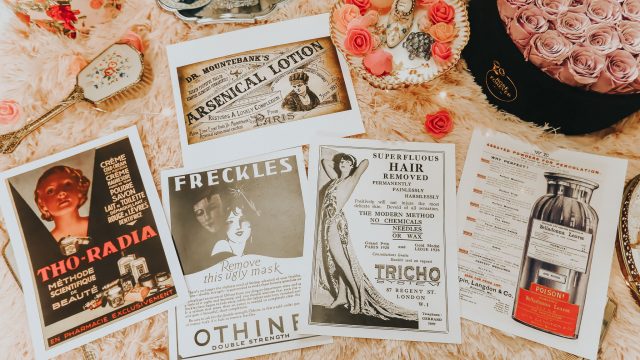
Hello lovelies, I thought it would be fun to research vintage lethal beauty secrets from the past. I was researching vintage beauty products and stumbled upon all of these highly deadly beauty secrets. Today we get micro-needling, laser hair removal, and botox, which might seem absurd one hundred years from now.
Lead Makeup:
Lead makeup has a long history in makeup and is still in makeup today. Lead has been used in cosmetics since antiquity. In the 18th century, women used to mix the lead with vinegar to make ceruse, which helped women achieve an extremely pale look, which was popular at the time. Smallpox was also rampant back then, and women had to hide all of the scars on their faces from the disease. The lead beauty products would have several side effects like grey hair, dried skin, severe abdominal pain, and would slowly kill you. Queen Elizabeth, the first, would wear this lead paint on her face to conceal her pockmarks that she got from smallpox on 1562.
Arsenic:
Arsenic was also another toxic ingredient used in cosmetics and was said to be the next miracle product to create a pale complexion. It would destroy red blood cells, which lead to pale skin and eventually, death. Women would make DIY versions by soaking the arsenic out of flypaper and rub it on their faces. Entrepreneurs saw an opportunity and started to make arsenic infused beauty products like Dr. McKenzie’s Improved Harmless Arsenic Complexion Wafers. These wafers and beauty products would eventually lead to death and make you go bald. If you stopped taking them abruptly, your complexion would get even worse, which made you feel the pressure to take them continually. Arsenic was around in cosmetics until the 1920s.
Mercury:
Mercury was used to cure blemishes in the past, and when absorbed into the skin it would cause birth defects, kidney and liver problems, fatigue, irritability, tremors, depression, and a metallic taste in the mouth.
Lethal Eye Drops:
Italian used deadly nightshade called belladonna as an eye drop to dilate their pupils. They thought this would make them more attractive. These drops would cause visual distortion and sensitivity to light as well as death.
Radioactive Skin-care:
Radium was a popular ingredient in skin care products in the 20th century and was used in various skin creams. “If placed on the face where the skin has become wrinkled or tired, the radioactive forces immediately take effect on the nerves and tissues. A continuous steady current of energy flows into the skin, and before long, the wrinkles have disappeared,” reads an advertisement for Radior Chin Straps in 1915.
Radior:
From about 1917, the London-based Radior company began marketing a line of cosmetics containing radium, including a Night Cream, Rouge, Compact Powder, Vanishing Cream, Talcum Powder, Hair Tonic, Skin Soap, Face Powder in six tints (Blanche, Naturelle, Rachel, Flesh, Ochre, and Brunette) and assorted pads that could be strapped to the face. Radium was supposed to energize people’s skin, but since it is a radioactive substance, it often caused vomiting, anemia, internal bleeding, and eventually cancer.
X-Ray Depilation:
Scientists discovered X-rays in the early 2twentieth century and promptly put them to use removing excess body hair. According to one report, some patients had to be exposed to the X-ray for up to twenty hours.
This caused their hair to fall out as well as skin thickening, ulcers, and cancer. But for a long time, the X-ray was marketed as a perfectly safe device for this aesthetic procedure.
Within a year of Wilhelm Roentgen’s 1895 discovery of a new form of radiation, that he called X-rays, the medical profession was using them for therapeutic as well as diagnostic purposes. Their first reported use in dermatology occurred in 1896 when Leopold Freund – the Viennese founder of radiotherapy – deployed them to treat a large hairy growth covering the entire back of a patient. After twelve days of treatments, during which the patient was exposed to 20 hours of X-rays, the hair on the growth began to fall out. The report on the case in 1901 began a long medical interest in using X-rays to treat hypertrichosis and other forms of excess hair.
Eyelash Extensions:
Vintage eyelash extensions were not a simple procedure like today and were quite terrifying. An 1899 newspaper article about eyelash extensions to speak for itself: “An ordinary fine needle is threaded with a long hair, generally taken from the head of the person to be operated upon. The lower border of the eyelid is then thoroughly cleaned, and so that the process may be as painless as possible rubbed with a solution of cocaine. The operator then, by a few skillful touches, runs his needle through the extreme edges of the eyelid between the epidermis and the lower border of the cartilage of the tragus. The needle passes in and out along the edge of the lid, leaving its hair thread in loops of carefully graduated length.”
Powdered wigs:
This dangerous fashion trend was started by Louis XIII when his long hair became a popular status symbol. The King of Frane started to go bald, so he wore wigs, which eventually became a fashion trend throughout Europe. The majority of wigs were made from goat and horsehair and were waxed, perfumed and powdered. The wigs were never washed, which became a breeding ground for lice and mice. Powdered wigs remained a symbol of class until the end of the 19th century. Today many judges and barristers in Britain and Australia still wear them to represent the monarch.


